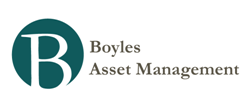John Mauldin: The Recession of 2011?
It was relatively easy for me to forecast the recessions of 2001 and late 2007 over a year in advance. We had an inverted yield curve for 90 days at levels that have ALWAYS heralded a recession in the US. Plus there were numerous other less accurate (in terms of consistency) indicators that were “flashing red.” (For new readers, an inverted yield curve is where long-term rates go below short-term rates, a [thankfully] rare condition.)
And since stocks drop on average more than 40% in a recession, suggesting that you get out of the stock market was not such a challenging call. Although, when Nouriel Roubini and I were on Larry Kudlow’s show in August of 2006, we got beaten up for our bearish views. And you know what? The stock market then proceeded to go up another 20% in the next six months. Ouch. That interview is still on YouTube at http://www.youtube.com/watch?v=9AUoB7x2mxE. Timing can be a real, um, problem. There is no exact way to time markets or recessions.
My view then was based on the inverted yield curve (as an article of faith) and, not much later in 2006, my growing alarm as I realized the extent of the folly of the subprime debt debacle and how severe a crisis it would become. I changed my assessment from a mild recession to a serious one in early 2007 as my research revealed more and more fault lines and the damning interconnection of the global banking system (which has NOT been fixed, only made worse since then). I should note that my early views were rather Pollyannaish, as I thought (originally) that losses to US banks would only be in the $400 billion range. I keep telling people that I am an optimist.
With the Fed artificially holding down rates on the short end of the curve, we are not going to get an inverted yield curve this time, so we have to look for other indicators to come up with a forecast for the US economy. We grew at less than 1% in the first half of the year. That is close to stall speed. And that was with a full dose of QE2! So now, let’s look at a series of charts that cause me to be very concerned about the near-term health of the economy. Then we turn to Europe and problems compounding there.
- Hussman Weekly Market Comment: Distinction Without A Difference
The difficulty today is not only that valuations are rich, but that on our metrics, present market conditions cluster among those that have produced strikingly negative market outcomes on a blended horizon from 2-weeks to 18-months. Wall Street’s beloved...
- Hussman Weekly Market Comment: Have We Avoided A Recession?
In our view, it is very difficult to obtain useful views about economic direction using the standard "flow of anecdotes" approach that is the bread-and-butter of many analysts. The economic data reported daily are a mix of leading, coincident and lagging...
- Hussman Weekly Market Comment: Europe: Just Getting Warmed Up
Last week, the financial markets mounted a striking shift back to the "risk-on" trade, as investor concerns about a recession were abandoned, and Wall Street came to believe that Europe will easily contain its banking problems. Accordingly, downside protection...
- Legg Mason Value Trust Investment Commentary: Fourth Quarter 2007
I think the market is in for a period of what the Greeks refer to as enantiodromia, the tendency of things to swing to the other side. This is not a forecast, but rather a reflection on valuation. -All of the poorest performing parts of the market, housing,...
- Protecting Your Income
The global economy still isn't back on its own feet as central banks are continuing to prop up the economy by printing more money. It seems like for the past few years all you've heard on the financial news is how the economy could slip into...

